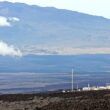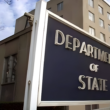The imprudence of unilateral US withdrawal from the Iran nuclear deal
May 8, 2018
The much-rumored and long-expected announcement by President Trump that he will order the United States to withdraw from the Iran nuclear deal—officially known as the Joint Comprehensive Plan of Action, or JCPOA—is arguably the worst policy option for addressing problems in what was the least-bad possible deal when it was signed. Contrary to what candidate and then-President Trump often repeated (with his penchant for hyperbole), it was not the worst deal in history.
There are some remarkable similarities between the slings and arrows being launched at this agreement here in the US and back in Iran. When it was signed, presidents in Iran and the United States both oversold the agreement, promising more than they could deliver. Conservatives here and in Iran were also, from the outset, ready to pounce on the deal—sometimes based on false claims about what it does or does not do, sometimes claiming that their side had made too many concessions. Ironically, in words that almost echo Trump’s language, Iranian conservatives called the JCPOA the most shameful one-sided deal Iran has signed in its modern history—a Torkmanchay, the 1828 agreement forced on a defeated and demoralized Iran by Russia, a pact synonymous with Iranian defeat and colonial arrogance. In Washington, as in Tehran, the opponents of the deal missed no opportunity to undermine it, demonize its negotiators, dampen or limit its potential positive impact, and create or use an excuse to overturn it. The ironic structural similarities between enmities against the JCPOA here and in Tehran has, under the complicated contours of current realities, particularly in Iran, taken on new ominous turn, with far reaching, even historic strategic consequences.
Much discussion of these consequences has focused on what might happen to the Nuclear Non-Proliferation Treaty, to regional arms races, to US relations with allies, or to relations between the United States and North Korea. In reality, the most important consequences must be sought in the realities and balance of forces in Iran. There, the economy is reeling under double-digit inflation and unemployment, a 50-percent fall in the price of Iranian currency in the last two months, a massive flight of capital from Iran’s fledgling markets, a financial system on the verge of collapse, a water shortage of almost Biblical proportions, and most important of all, an increasingly disgruntled population more and more militating against regime corruption, incompetence, cronyism, costly and regional adventurism. For the first time, that population is also defiantly finding Ayatolla Ali Khamenei, the Supreme Leader, responsible for failed policies.
In these troubled times, for Khamenei and his allies, the US scuttling of the JCPOA will be a god-send. It will give them—as it has already done—bragging rights, allowing them to plausibly declare that they were right in their opposition to rapprochement with the US. It might give the Islamic Revolutionary Guard Corps, or IRGC, the excuse to seize power outright and establish a military government. It will certainly give the IRGC a chance to busy giddy minds with allegations of foreign intrigues. In other words, the US pullout from the Iran nuclear agreement will afford the Supreme Leader and his allies yet another scapegoat to blame for their own failed policies and dogmas. Iran will not leave a US-less JCPOA, but the conservatives there will milk the US pullout for all they can to isolate any opposition to their failed regime.
Yet more potentially dangerous is the effect of the US action on the regional role and power of Russia and China. Here in the United States, the media have been preoccupied with covering the apparent Russian meddling in US politics. In Iran, however, Russia has been increasing its power and presence. Russian planes now have the right to use Iranian bases to fly missions. Iran quietly announced recently that it will henceforth try to replace English with Russian as the primary foreign language taught in Iranian schools. Khamenei has long quietly favored an Iranian pivot to Russia. Talk of the US withdrawal from JCPOA was enough for him, and his allies to propose such a move more openly. An Iranian pivot toward Russia—and away from the West—will have far reaching, perhaps historic consequences.
No less critically, China, with investment capital on hand, waits patiently on the horizon. A further weakened Iranian regime and economy might have no place to turn, but to China.
The imprudent policies of today, including a unilateral withdrawal or undermining of the JCPOA, might well come to dangerous roost, long after Donald Trump ceases to be president of the United States.
Abbas Milani
Hamid and Christina Moghadam Director of Iranian Studies at Stanford University
EXPERT COMMENTARY
co-director, the Iran Democracy Project at the Hoover Institution













